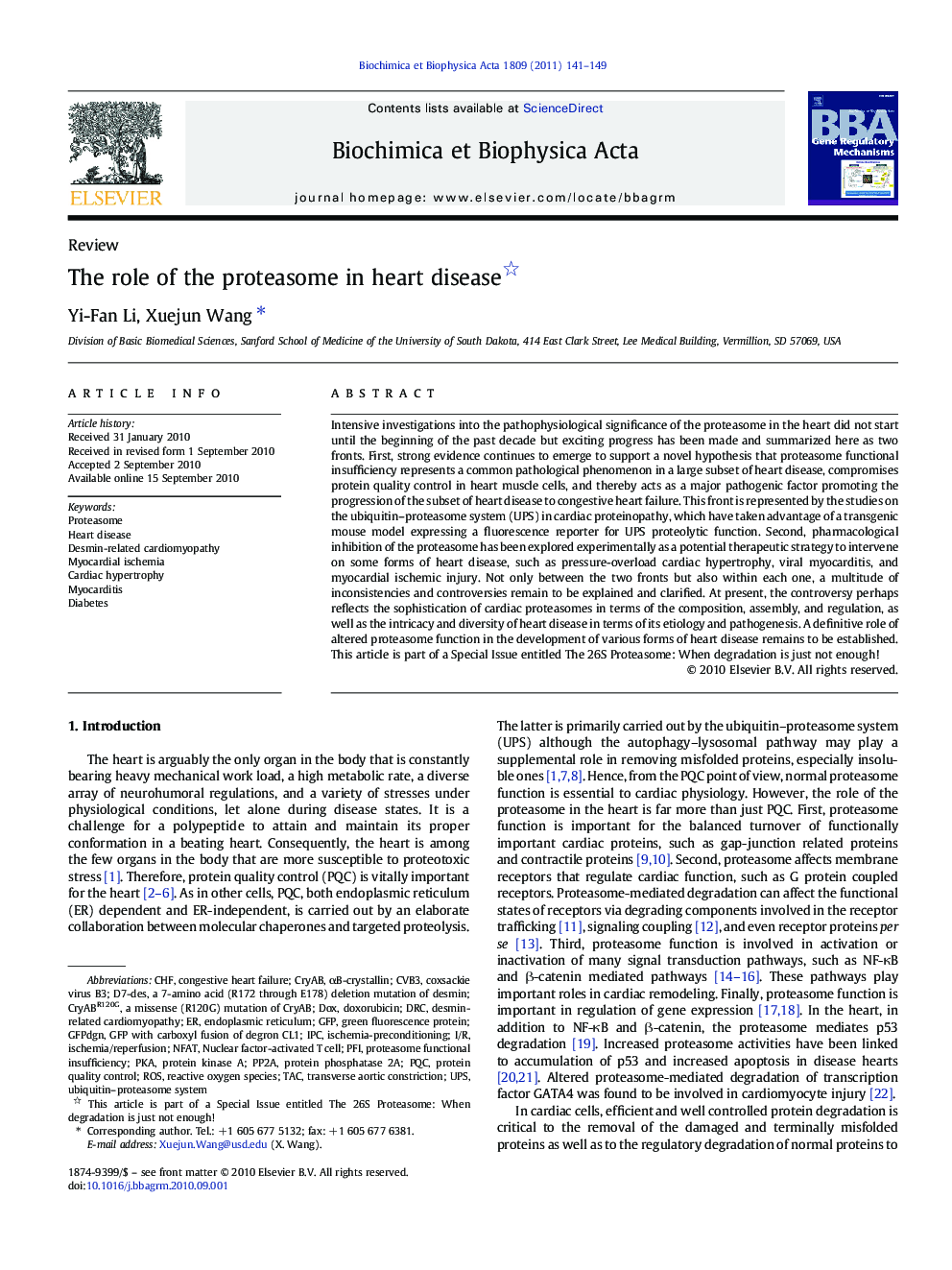| Article ID | Journal | Published Year | Pages | File Type |
|---|---|---|---|---|
| 1946689 | Biochimica et Biophysica Acta (BBA) - Gene Regulatory Mechanisms | 2011 | 9 Pages |
Intensive investigations into the pathophysiological significance of the proteasome in the heart did not start until the beginning of the past decade but exciting progress has been made and summarized here as two fronts. First, strong evidence continues to emerge to support a novel hypothesis that proteasome functional insufficiency represents a common pathological phenomenon in a large subset of heart disease, compromises protein quality control in heart muscle cells, and thereby acts as a major pathogenic factor promoting the progression of the subset of heart disease to congestive heart failure. This front is represented by the studies on the ubiquitin–proteasome system (UPS) in cardiac proteinopathy, which have taken advantage of a transgenic mouse model expressing a fluorescence reporter for UPS proteolytic function. Second, pharmacological inhibition of the proteasome has been explored experimentally as a potential therapeutic strategy to intervene on some forms of heart disease, such as pressure-overload cardiac hypertrophy, viral myocarditis, and myocardial ischemic injury. Not only between the two fronts but also within each one, a multitude of inconsistencies and controversies remain to be explained and clarified. At present, the controversy perhaps reflects the sophistication of cardiac proteasomes in terms of the composition, assembly, and regulation, as well as the intricacy and diversity of heart disease in terms of its etiology and pathogenesis. A definitive role of altered proteasome function in the development of various forms of heart disease remains to be established. This article is part of a Special Issue entitled The 26S Proteasome: When degradation is just not enough!
Research Highlights►Cardiac proteasomes may differ from those of other tissues/organs. ►Proteasome functional insufficiency is common in many forms of heart disease. ►Proteasome functional insufficiency may play a key role in cardiac pathogenesis. ►Brief proteasome inhibition might be useful to intervene on some cardiac disease. ►Genetic tools are needed to decipher the pathophysiology of cardiac proteasomes.
